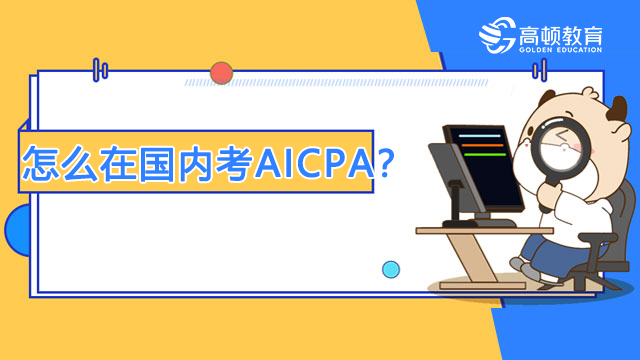AICPA考试信息技术IFRS内容转换思考(2)
Background of IFRS&IT Impact
Today,more than 100 countries require/permit the use of International Financial Reporting Standards(IFRS),or are converging with the IASB's standards.On February 24,2010,SEC Chairman Mary L.Schapiro released a public statement regarding IFRS convergence between International Accounting Standards Board(IASB)and Financial Accounting Standards Board(FASB):For nearly 30 years,the Commission has promoted a single set of high-quality globally accepted accounting standards,which would advance the dual goals of improving financial reporting within the U.S.and reducing country-by-country disparities in financial reporting,but supporting this goal is only the beginning of the discussion,not the end.
In the AICPA IFRS Preparedness Survey conducted in September 2009,a 54% majority of CPAs believed that the SEC should ultimately require adoption of IFRS for U.S.public companies.Furthermore,over 50% of respondents expressed a need to know some level of IFRS over the next three years.However,with these uncertainties surrounding U.S.CPAs and SEC's decision to mandate IFRS for U.S.public companies,some organizations question,why convert to IFRS?
·Considerations for filing of IFRS financial statements include:
·Multinational companies may benefit from the use of common financial reporting systems
·IFRS may ease financial statement comparability with other companies that use IFRS
·IFRS is intended to facilitate cross-border investments and access to global capital markets
Other key benefits include opportunities to improve/streamline business functions and processes,globally integrate the financial IT systems,and achieve consolidation/reporting efficiency.On the other hand,there are risks associated when a company decides to convert to IFRS.Some of these risks are excessive resource spending,improper data management or migration,incomplete revisions of policies and procedures,future changes that standard setters may issue,and more.
While there are many benefits and risks to converting to IFRS,a few key factors should be taken into consideration prior to implementation or during project planning.Although the IASB and FASB are working toward convergence,there are currently many differences between the two sets of standards(see Key Differences between IFRS and GAAP below).It will be important to monitor the changes as the two boards complete their joint work plan as outlined in their Memorandum of Understanding.Furthermore,companies should first assess which principles/standards will impact their organizations directly,conduct some research,and have a strong understanding prior to implementation.A detailed discussion regarding project planning is further explored under Implementation Considerations.
Potential System Impacts of an IFRS Conversion
As a company prepares to convert to IFRS,the impact to information technology(IT)and financial systems should be taken into consideration during the planning phase.Representatives from the company's IT department should be involved throughout the planning process to evaluate how the proposed accounting changes will impact the financial systems(transactional or reporting).
The impact to IT and financial systems can vary depending on a company's existing structure and environment.This may include its IT and financial systems capability/integration,industry complexity,company size,relevance of business process/transaction,internal control structure,mergers&acquisitions process,and other attributes.
If a company's IT and financial systems are substantially integrated globally,then the degree of impact or modifications may be of lesser extent.The extent of changes may be primarily some sub-ledger configuration changes and more extensively in the general ledger and consolidation system.However,if a company has frequently acquired entities(each with unique financial systems)and has not yet integrated the acquired company systems within the organization's infrastructure,then the degree of system impact may be quite large at the sub-ledger level as well as the internal reporting level.
The extent of changes may also vary depending on the consolidation method that management chooses.Consolidations may be implemented at the corporate-level or at each individual country/entity.However,companies that implement at the corporate level may potentially run the risk of error and potentially re-stating its financial statements as well as other situations if the numerous journal entry adjustments are not tracked or controlled properly.Furthermore,if a dual reporting system is in place during the transition period,the reconciliation process needs to be taken into consideration.Reconciling between two differentviewsof the financial statements poses different problems than singularly supporting of one or the other.Therefore,having an effective reconciliation reporting system is an important aspect to the learning curve of the IFRS transition.
While system changes will have costs associated with them,some companies or the management team may view the IFRS conversion project as an opportunity to re-assess and improve the internal business processes.It will be up to the organization to determine which path to choose,and the outcome associated with the path.Below is a chart that highlights some of the impact to IT and financial systems.
If the company is ready to convert to IFRS,it's important to ensure that the company has good change management policies and procedures in place.Having strong policies and procedures will be beneficial if further system revisions are required and traceable for internal control purposes.Refer to Implementation Considerations below for more details about impact to Internal Controls.
USCPA教材试读-REG
真题高频考点,刷题全靠这份资料
USCPA-REG学习思维导图
梳理核心考点,一图看懂全部章节
USCPA考试公式大全
突破计算瓶颈,节省考试时间
- 美国注会考试考多少分及格?
-
uscpa一共有四门科目,每门考试的满分为99分,75分及格,但是这个75不是75%的正确率,不能被理解为百分比。
- uscpa一共几门几年考完?
-
uscpa总共考4门,一般单科成绩的有效期为18个月,大家需要在这个有效期的时间内,通过剩余的三门科目,否则第一门通过的考试成绩就作废,需要重考。因此,uscpa考试周期最长为18个月。
- uscpa一年能考几次?
-
NASBA和AICPA开启了连续测试期后,大家可以不受限制的全年参加uscpa考试。在uscpa的考试成绩公布后,如果大家发现自己没有通过考试,能够马上申请并参加该门科目考试,也不用再等待下一个考季才能申请重考。
- uscpa的含金量如何?
-
uscpa是美国正式的注册会计师国家资格,在美国拥有审计签字权,作为美国财经领域的三大黄金证书之一,在国内外都有着很好的知名度。很多外企招聘财务经理或财务总监岗位,都将持有uscpa证书作为优先录用条件。
-
AICPA该怎样备考?有没有什么资料推荐? 2023-08-29
-
USCPA的考试方式是怎么样的? 2023-07-18
-
uscpa网课有必要吗?零基础怎么学uscpa? 2023-05-05
-
2023年AICPA补学分怎么补 2022-12-29
-
AICPA考试的科目介绍是怎样的?考生应该怎样备考AICPA? 2022-07-26
-
AICPA报考对考生有什么要求?AICPA考试备考需要做什么? 2022-07-20
-
USCPA科目分别怎么备考?USCPA考前需要怎么做? 2022-07-20
-
USCPA考试科目着重考察什么?USCPA考试的题型分为哪几种? 2022-07-12
-
AICPA考试的内容有哪些?AICPA的备考方案是什么? 2022-07-07
-
怎样才能拿下USCPA考试?USCPA执照申请需要满足什么条件? 2022-07-07
-
USCPA具体的学习内容有哪些?学习USCPA如何利用好教材? 2022-07-06
-
USCPA考试对于国内考生的难点在哪?USCPA备考建议是什么? 2022-07-06
-
USCPA考试对于国内考生有什么难点?高效学习USCPA的方法是什么? 2022-07-05
-
USCPA考试考察的内容是什么?USCPA考试学习的建议有哪些? 2022-07-04
-
USCPA考试有什么内容?USCPA考试没通过心态如何调整? 2022-07-04
-
USCPA考试有什么内容?USCPA考试没通过心态如何调整? 2022-07-04
-
AICPA考试具体考察什么内容?应该怎么学习AICPA? 2022-06-22
-
USCPA考试难度在什么地方?有什么学习方法? 2022-05-30
-
USCPA考试哪一门最难?有什么学习方法? 2022-05-27
-
2022年USCPA备考有什么小技巧? 2022-05-27
-
USCPA考试是一个好考的考试吗? 2022-05-26
-
考USCPA怎么能提分? 2022-05-26
-
如何通过美国注册会计师考试? 2022-05-20
-
怎么在国内考AICPA? 2022-05-16
-
USCPA各科考试难度怎样? 2022-05-07
-
AICPA学习需要报培训班吗?培训有什么优势? 2022-03-23
-
2022年USCPA可以在哪些机构篇培训?靠谱吗? 2022-03-11
-
USCPA培训班哪个好?如何选择? 2022-03-10
-
USCPA选择哪里培训?选择培训需要考虑什么? 2022-03-09
-
UCPA该怎么选择培训班?哪里好? 2022-02-25
 更多服务
更多服务










































